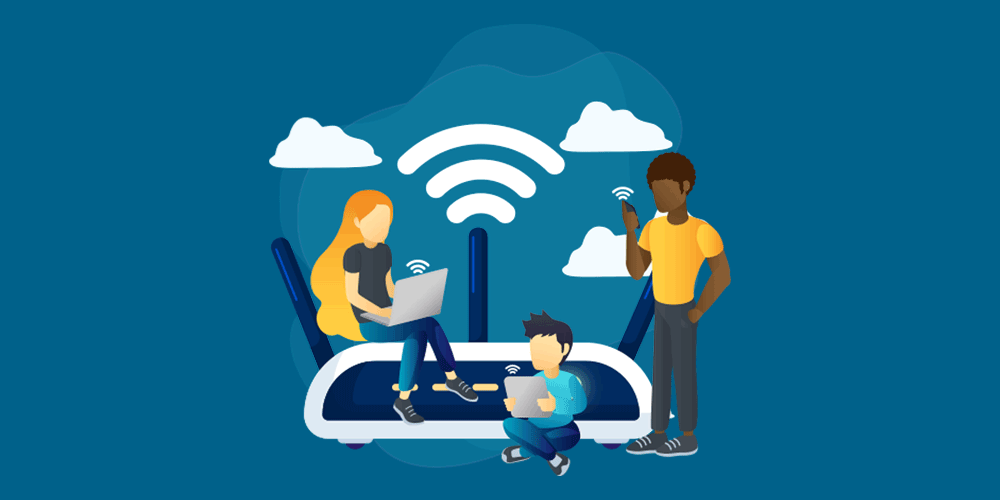
The Foundation of Global Connectivity
The internet has become an essential part of modern society, shaping how individuals, businesses, and institutions operate. No longer a luxury or convenience, it is now a fundamental infrastructure that supports economic growth, innovation, communication, and efficiency across industries. The digital landscape has evolved to the point where nearly every aspect of daily life is connected to online platforms, making the internet indispensable in an increasingly interconnected world.
Access to real-time information, streamlined business operations, and global connectivity are just a few of the ways the internet has transformed industries. Without it, productivity would decline, innovation would stagnate, and economic opportunities would become more limited. As the world continues to advance, the internet remains the driving force behind progress, ensuring businesses and individuals can thrive in an era of digital transformation.
Driving Business Growth and Efficiency
The internet has revolutionized how businesses operate, enabling companies to streamline processes, enhance collaboration, and reach customers worldwide. With cloud-based solutions, digital communication platforms, and automated systems, organizations can optimize workflows and reduce operational costs.
Key benefits include:
- Remote Work and Virtual Collaboration – Employees can work from anywhere, increasing productivity and reducing overhead costs.
- Cloud Computing and Data Management – Businesses can store and analyze vast amounts of data, improving decision-making and operational efficiency.
- E-commerce and Digital Transactions – Companies can sell products and services online, reaching a broader customer base and expanding revenue streams.
- Automated Customer Support – AI-powered chatbots and digital help desks improve customer service and reduce response times.
With these advancements, companies can scale more effectively and maintain competitiveness in an evolving marketplace. The internet has not only changed how businesses function but has also redefined consumer expectations, pushing companies to continuously innovate and improve user experiences.
Enhancing Education and Knowledge Sharing
The internet has made learning more accessible and inclusive, allowing individuals to acquire knowledge and skills beyond traditional classroom settings. Online education platforms, virtual training programs, and digital libraries provide learners with the resources they need to advance their careers and personal development.
Online education has expanded opportunities in several ways:
- Remote Learning and E-Learning Platforms – Universities and institutions offer degree programs and certifications that can be completed from anywhere.
- Access to Digital Resources – Students and professionals can access research papers, academic journals, and open-source materials instantly.
- Corporate Training and Development – Businesses use online courses to upskill employees and ensure workforce adaptability.
With digital learning solutions, knowledge is no longer restricted by location or financial barriers, making education more accessible and empowering individuals to keep pace with industry demands.
Enterprise SEO Agency: Maximizing Online Visibility
In an increasingly digital marketplace, businesses must prioritize online visibility to remain competitive. An enterprise SEO agency helps companies enhance their digital presence, ensuring that they reach their target audiences effectively.
Key services provided by an enterprise SEO agency include:
- Technical SEO Optimization – Improving website structure, speed, and user experience.
- Keyword Research and Content Strategy – Aligning digital content with search intent to drive organic traffic.
- Link-Building and Authority Development – Strengthening domain credibility to improve search rankings.
- Performance Analytics and Adjustments – Monitoring digital engagement and refining strategies for long-term success.
By leveraging SEO best practices, businesses can attract quality leads, improve conversion rates, and sustain growth in an increasingly competitive digital economy.
Revolutionizing Communication and Collaboration
The internet has changed the way people interact, making communication more immediate and efficient. Businesses, governments, and individuals rely on digital platforms to share information, collaborate on projects, and maintain relationships across vast distances.
Some of the most impactful communication tools include:
- Video Conferencing and Virtual Meetings – Teams can collaborate in real-time, regardless of location.
- Instant Messaging and Email Services – Businesses and individuals can exchange information quickly and efficiently.
- Social Media and Digital Engagement – Organizations use social platforms to build brand awareness, engage with customers, and gather market insights.
By enabling seamless communication, the internet fosters stronger relationships, enhances teamwork, and improves overall operational efficiency across industries.
Transforming Healthcare and Telemedicine
The healthcare industry has greatly benefited from the internet, with advancements in telemedicine, electronic health records (EHRs), and medical research. Digital platforms now enable patients to access healthcare services remotely, reducing the need for physical visits while increasing efficiency and accessibility.
Key innovations include:
- Telehealth Services – Patients can consult doctors online, improving accessibility to medical care.
- AI-Powered Diagnostics – Machine learning algorithms help detect diseases and recommend treatments.
- Wearable Health Devices – Real-time tracking of vital signs allows for early detection of medical conditions.
The integration of internet-based technologies in healthcare ensures that medical services are more efficient, data-driven, and patient-centric.
Expanding Financial Access and Digital Banking
The financial industry has undergone a digital transformation, making banking, investing, and transactions more efficient and secure. Online banking platforms, fintech solutions, and cryptocurrency markets have redefined how individuals and businesses manage finances.
Advancements in digital finance include:
- Mobile Payment Solutions – Apps like PayPal, Venmo, and Apple Pay allow for seamless transactions.
- Online Investment and Trading – Digital platforms enable individuals to manage portfolios and engage in global markets.
- AI-Powered Fraud Detection – Machine learning algorithms identify suspicious activities and enhance cybersecurity.
By offering greater financial accessibility and efficiency, the internet has played a crucial role in economic development and financial inclusion.
The Internet as a Driving Force of Innovation
Innovation across industries is fueled by the internet, driving technological advancements, automation, and artificial intelligence. Businesses rely on data analytics, cloud computing, and digital transformation strategies to stay ahead in their respective fields.
Emerging trends include:
- The Internet of Things (IoT) – Connecting smart devices to optimize productivity and efficiency.
- Blockchain Technology – Enhancing security and transparency in digital transactions.
- Artificial Intelligence and Machine Learning – Automating processes and improving decision-making capabilities.
The internet has not only created new business models but has also fostered continuous innovation that pushes industries forward.
A Digital World Dependent on the Internet
The internet is no longer just a tool—it is the backbone of modern society. From business growth and education to healthcare and finance, its impact is undeniable. As industries continue to evolve, digital transformation remains a necessity, making internet access more critical than ever.
By embracing digital strategies, optimizing operations, and leveraging online technologies, businesses and individuals can continue to thrive in an increasingly interconnected world. The internet is not just a convenience—it is an essential component of progress, efficiency, and global advancement.





